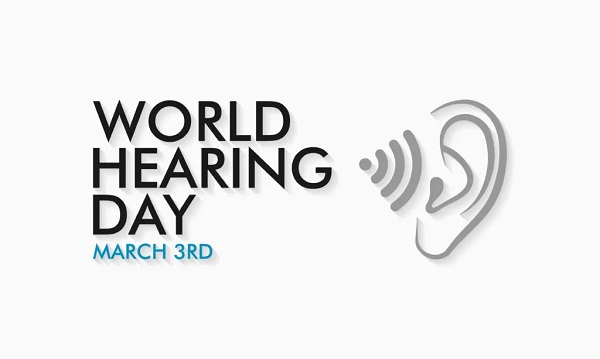
World Hearing Day: March 3
Thanks to our previous publications, you may be probably aware that the World Health Organisation (WHO) has declared March 3 of every year as ‘World Hearing Day’ (WHD).
Advertisement
It is celebrated yearly to raise awareness of ear and hearing care as well as preventing hearing loss globally.
Each year, WHO decides on a theme to mark the activities.
The theme for this year’s WHD is: “Ear and hearing care for all! Let’s make it a reality”.
The sense of hearing is a vital one and the first to develop in a baby inside the womb.
The ear is the sole organ for the function of hearing.
Without hearing, verbal communication is rarely possible and will require people to resort to alternative means such as gestures and signs to get their message across.
One of the most common problems in our society is ear/hearing problems.
According to WHO, over 60 per cent of these can be identified and addressed at the primary level of care (a patient's first contact point with the health system).
Through training and the development of skills and resources at the primary level of care, this is achievable.
Training sign language instructors in hospitals and in the community will help to support deaf patients and will go a long way to improving their quality of life.
WHD 2023
On WHD 2023, the WHO will launch a new training manual: ‘Primary ear and hearing care training manual’ to help with ear and hearing care for all.
It is a practical guide on the prevention, identification and management of hearing loss and common ear diseases.
These issues can lead to hearing loss and is intended mainly for health workers and doctors who work at primary care level and provide services to people either at health facilities or in communities.
One of the early ways of identifying hearing loss is newborn screening.
Free universal newborn hearing screening helps in the early identification of hearing loss.
Children who have a negative hearing screen result at birth would be tested further and the appropriate intervention could be provided to reduce the impact of the loss.
To preserve one’s hearing, both the ear and hearing must be cared for.
Yes, they are two different things.
The ear is the organ and hearing is the function.
Care
How can we care for ear and hearing?
The ear must be preserved and taken care of just like the skin or kidneys or any other vital organs in the body.
This means, regular checks, avoiding activities that will harm it such as inserting objects into the ear, reporting to the hospital when unusual things are observed in and around the ear.
In preserving one’s hearing, some of the things that can be done include listening to sound such as music at moderate volumes and avoiding very loud and noisy places.
It also includes having one’s hearing checked routinely. With the mention of hearing and ear, it is important to note that care of these two is handled by different professionals.
The professional who handles the ear, ear care and any illness of the ear is known as the Ear Nose and Throat doctor.
They are medical professionals who specialise in the ear and its structure and how to treat any pathologies/illnesses associated with the ear.
On the other hand, the audiologist is an allied health professional who specialises in hearing and hearing care.
Ear and hearing care helps remove some of the stigmas associated with hearing loss and support with early diagnosis and intervention.
Loss
It is important that adults have their hearing checked regularly as age can have an impact on one’s level of hearing.
Without help, hearing loss can result in adults missing out on important sounds and words, making it difficult and tiring to carry out conversations and interact with others.
Hearing loss can add to or worsen depression and dementia in adults.
Hearing loss does not only affect the individual but also those around the individual and may result in misunderstandings and frustrations which can impact productivity at work, interpersonal relationships and general quality of life.
It is therefore important to visit your doctor, an audiologist or an ENT doctor for an examination if you are concerned about your ear or hearing.
Governments, including policy makers have a key role to play in achieving ear and hearing care for all.
Integrating ear and hearing care into primary health care will go a long way to making this accessible and a reality.
The writers are Speech and Language Therapists/Clinical Tutors.
University of Ghana.




